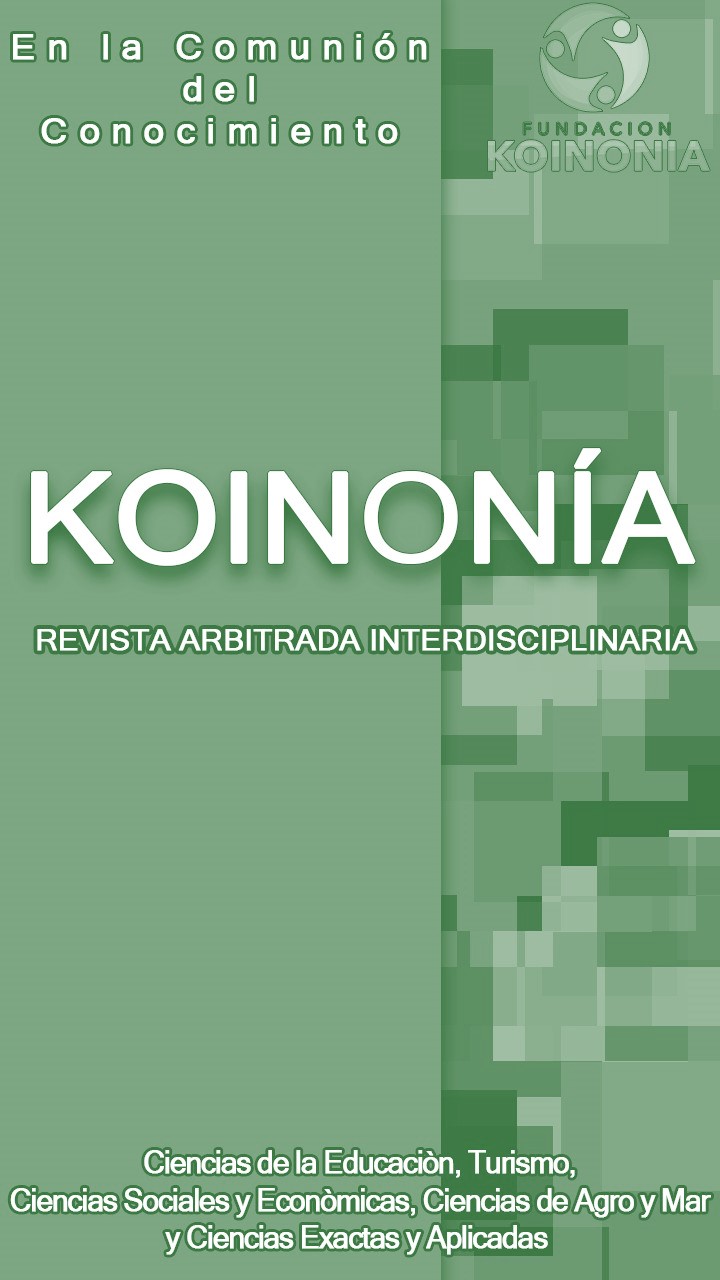Evaluation of corporate responsibility strategies corporate responsibility strategies in digital marketing
DOI:
https://doi.org/10.35381/r.k.v9i2.4183Keywords:
Social responsibility, evaluation, brand image, (UNESCO Thesaurus)Abstract
Corporate social responsibility (CSR) encompasses multiple aspects that allow the application of different measurable activities to identify its effectiveness. The research evaluated the effectiveness of CSR in lubrication companies in the city of Latacunga to improve their corporate image. A descriptive methodology was used. The results showed the importance of transparent communication of CSR activities in social networks. The relevance of corporate image management and consumer preference for lubricators with a clear identity and that invest in community projects were highlighted. Transparency in the disclosure of investments and social and environmental standards was also identified as crucial for building trust and credibility. Importantly, developing effective CSR strategies can improve consumer appreciation and preference for lubricators, strengthening their market positioning.
Downloads
References
Cordero, D., Erazo, J., y Bermeo, K. (2023). Calidad del servicio en organizaciones proveedoras de internet desde la perspectiva de estudiantes de los diferentes niveles educativos [Service Quality in Internet Provider Organizations from the Perspective of Students at Different Educational Levels]. Revista Conrado, 19(90), 83-91. https://n9.cl/wkt5p
Erazo, J., y Narváez, C. (2022). Impacto de la responsabilidad social universitaria en las UEP de la ciudad de Cuenca [Impact of University Social Responsibility on UEPs in the City of Cuenca]. Revista Conrado, 18(89), 378-387. https://n9.cl/fb6vi
Espinoza, J., y Vásquez, E. (2023). Responsabilidad social empresarial en el sector automotriz Cañar, Ecuador [Corporate Social Responsibility in the Automotive Sector in Cañar, Ecuador]. Cienciamatria, 9(1), 458-466. https://doi.org/10.35381/cm.v9i1.1090
Fuentes, A., y Guamán, S. (2019). Análisis de la importancia de identidad corporativa de los negocios de repuestos y accesorios automotriz para el posicionamiento de marca ubicados en la calle Ayacucho de la ciudad de Guayaquil [Analysis of the Importance of Corporate Identity for Auto Parts and Accessories Businesses for Brand Positioning Located on Ayacucho Street in the City of Guayaquil]. Revista Observatorio de la Economía Latinoamericana, 9. https://n9.cl/d2y0nq
Gaceta, D. l. (2023). Se incrementó número de vehículos matriculados en movilidad de Latacunga [The Number of Registered Vehicles Increased in Latacunga Mobility]. https://n9.cl/w6ijj
García, G., De Miguel, M., Guzmán, L., y Manzaba, A. (2020). La imagen corporativa en una compañía de transporte pesado, Santo Domingo, Ecuador [Corporate Image in a Heavy Transport Company in Santo Domingo, Ecuador]. Ciencias Holguín, 26(3), 26-35.
García, J., y Madero, S. (2015). Conciencia tecnológica: La evolución del concepto de responsabilidad social corporativa: Revisión literaria [Technological Awareness: The Evolution of the Concept of Corporate Social Responsibility: A Literary Review]. Conciencia Tecnológica, (51), 38-46.
Morocho, A., Erazo, J., Narváez, C., y Carvache, S. (2023). La educación financiera en estudiantes universitarios y su relación con el uso del crédito educativo [Financial Education in University Students and Its Relationship with the Use of Educational Credit]. Revista Conrado, 19(91), 179-186. https://n9.cl/q11a3
Moyano, J., Cordero, C., y Carreño, M. (2020). Modelo de responsabilidad social para la empresa elite del sector automotriz en la ciudad de Cuenca, Ecuador [Corporate Social Responsibility Model for the Elite Automotive Sector Company in the City of Cuenca, Ecuador]. Telos, 22(1), 176-178. https://doi.org/10.36390/telos221.12
Narváez, C., y Erazo, J. (2022). Sector informal de textiles y confecciones: Un análisis de las competencias laborales [Informal Sector of Textiles and Clothing: An Analysis of Labor Competencies]. Universidad Y Sociedad, 14(1), 673-688. https://n9.cl/tlrwx
Ramos, E., y Valle, N. (2019). Gestión de imagen corporativa como estrategia de sostenibilidad: Camino al cambio empresarial [Corporate Image Management as a Sustainability Strategy: The Road to Business Change]. Universidad Y Sociedad, 12(1), 292-298.
Sánchez, J., y Pintado, T. (2009). Imagen corporativa: Influencia en la gestión empresarial [Corporate Image: Influence on Business Management]. Madrid: Esic Editorial.
Valle, D., y Vásquez, D. (2023). Relación entre la comunicación corporativa y la imagen corporativa [Relationship Between Corporate Communication and Corporate Image]. Reicomunicar, 6(12), 73-80. https://doi.org/10.46296/rc.v6i12.0143
Wade, M. (2021). Responsabilidad corporativa en la era digital [Corporate Responsibility in the Digital Age]. Mitsloan, 1. https://n9.cl/436oe
Published
How to Cite
Issue
Section
License
Copyright (c) 2024 Mayra Verónica Machuca-Portilla, Juan Edmundo Álvarez-Gavilanes, José Alberto Rivera-Costales

This work is licensed under a Creative Commons Attribution-NonCommercial-ShareAlike 4.0 International License.
CC BY-NC-SA : Esta licencia permite a los reutilizadores distribuir, remezclar, adaptar y construir sobre el material en cualquier medio o formato solo con fines no comerciales, y solo siempre y cuando se dé la atribución al creador. Si remezcla, adapta o construye sobre el material, debe licenciar el material modificado bajo términos idénticos.
OAI-PMH URL: https://fundacionkoinonia.com.ve/ojs/index.php/revistakoinonia/oai.









